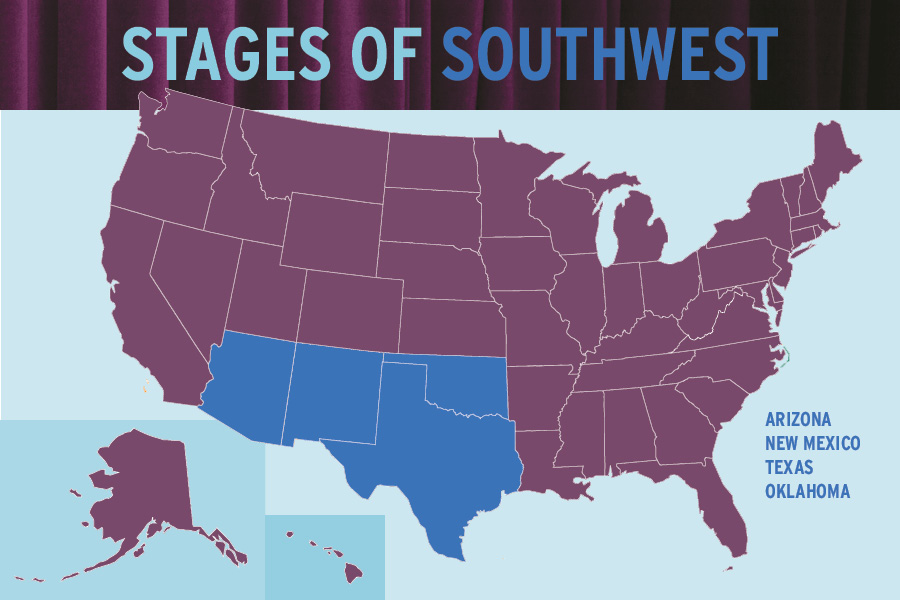As temperatures rise both socially and physically in the Southwest, the COVID-19 pandemic shows no sign of relenting. In fact, hospitalizations have increased precipitously in Texas and Arizona since Memorial Day, while New Mexico’s Indigenous population faces devastating death rates and economic ruin. But amid the prolonged summer of disease and tension, many theatres in the Southwest persist with online education, community engagement, and solidarity with the Black Lives Matter movement, though at least one I spoke to has since succumbed to the pandemic’s harsh economic downturn.
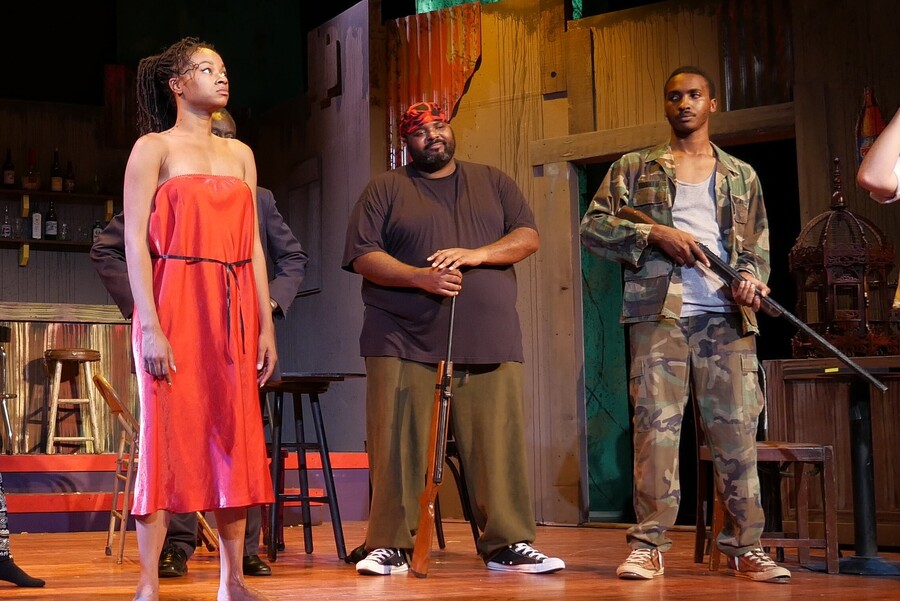
Like the rest of the world, performances at the Bishop Arts Theatre Center (BATC) in Dallas came to a sudden stop in mid-March. Rehearsals for the regional premiere of The Woman Who Composed for Broadway, a show created by actor, director, and University of North Texas professor Marjorie Hayes, were initially frozen amid the pandemic-induced uncertainty.
As quarantine dragged on, the show was canceled outright, and the May world premiere of Curse of the Puerto Ricans by Rosa Fernandez was postponed indefinitely. The cancellations expanded to the company’s speaker series, including appearances by playwrights Christine Toy Johnson and Don X. Nguyen, and all of its spring education programs.
The center was able to reorient its summer programming to engage with the surrounding community. Executive artistic director Teresa Coleman Wash noted that BATC doesn’t have the luxury of simply closing up shop, because there is still work to be done. “At BATC, we have always touted ourselves as a neighborhood resource center, not just a performing arts organization,” she said. “We are really listening, so programming might look different from one week to the next.”
The center’s flexibility has allowed it to launch a virtual summer camp in the beginning of June and to develop classes to retrain the teaching artist staff in a partnership with Dallas Independent School District. BATC also partnered with local memory care facilities to hold outdoor experimental workshops for aging members of the community. This programming takes the place of the storytelling circle for senior citizens that used to take place weekly in the theatre.
This flexibility will continue into the next season as BATC considers both virtual and in-person performances, outdoor venues, and synchronous and asynchronous programming, with each event considering the safety of the employees, artists, and audiences.
In addition to its staff’s health, BATC has also been working to ensure their employment, both full-time and part-time, through the Paycheck Protection Program. Fiscal prudency, learned during the 2008 Recession, has allowed the company to stockpile resources, bringing it into the third month of the pandemic with about eight months of cash reserves. “The reality is this is a marathon, and none of us know how all of this is going to play out,” Wash said.
“Because of systemic racism and implicit bias,” she continued, “our theatre has been intentional and strategic about diversifying our income, but this pandemic has left us incredibly vulnerable.” Women of color who lead grassroots nonprofits receive less than 1 percent of philanthropic dollars, Wash said, despite representing 14 percent of nonprofit leadership.
In solidarity with the Black Lives Matter movement, BATC partnered with Mothers Against Police Brutality and other local Black and Latinx theatres, including Soul Rep Theatre Company, Cara Mía Theatre, and Teatro Dallas, for a June 10 virtual Q&A in response to the protests in Dallas. The event, called “New Policies to Support the Protest,” outlined 10 police reform demands for the city. Wash believes that this is a pivotal moment to reimagine the industry.
“My hope for the future of the theatre industry is to dismantle business as usual,” she said, “one that I hope never to return to.”
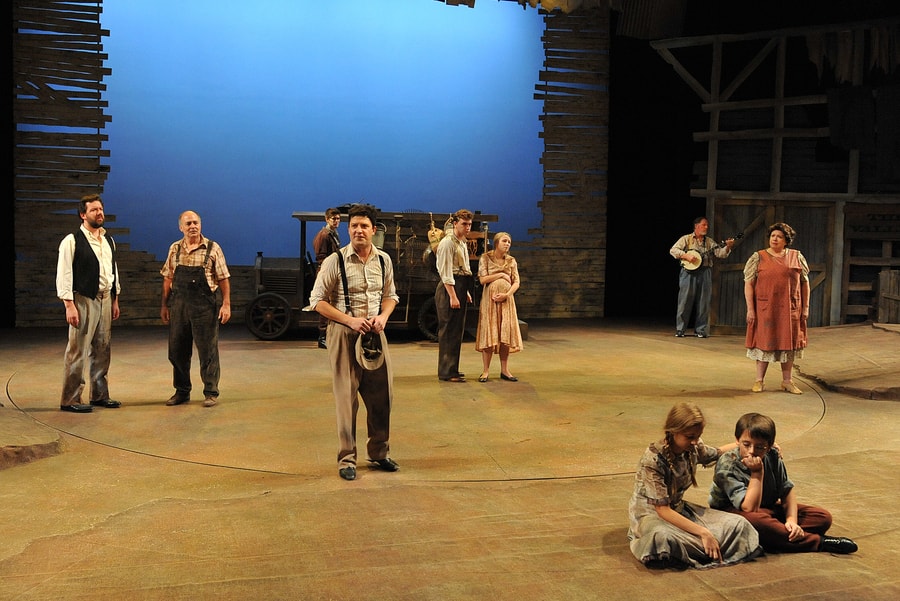
“Theatre is like sport, where if we play it right, everybody wins because we made it all together,” said Donald Jordan, founding artistic director of the Oklahoma City Repertory Theatre (OKC Rep). Even in this time when it can feel like everyone is losing? “We really believe that theatre is in a thread of service, to our art, to the artists, to the patrons, to the community, to the world,” Jordan said. “So we’re trying to continue doing things of meaningful service.”
OKC Rep has launched a YouTube discussion series looking back at its 2014 production of The Grapes of Wrath, because its message of resiliency is as pertinent today as it was when Steinbeck published the novel of the same name in 1939. The series serves as an alternative to the cancelled productions of The Oklahoma City Project, a play by Ruth Charnay about the 1995 bombing of the Murrah FBI Building, and the season’s closing production of A Gentleman’s Guide to Love and Murder by Robert L. Freedman and Steven Lutvak.
Pending the development of a COVID-19 vaccine, OKC Rep doesn’t anticipate in-person performance until the fall of 2021. Jordan said the theatre is exploring virtual programming right now and plans to produce digital content until it is safe to return to the theatre.
Operating with a small four-person staff has allowed OKC Rep to sustain its employees. Still, Jordan said, times are tight, as the nation doesn’t have an enduring legacy of public support of nonprofit professional theatres: “We are still highly dependent on a hybrid business model.”
Despite the financial stress, Jordan is continuing to develop programming. OKC Rep has teamed up with the Pollard Theatre Company and Oklahoma City University, led by artistic director W. Jerome Stevenson in Guthrie, Okla., to bring awareness of racism and opportunities for activism in the industry. The partnership plans to bring Dallas-based actress Denise Lee to facilitate her Change the Perception program in central Oklahoma.
“We’ve been talking about COVID-19 and all of the challenges of the past week,” Jordan said. “This is both a moment of tragedy and a moment of opportunity.”
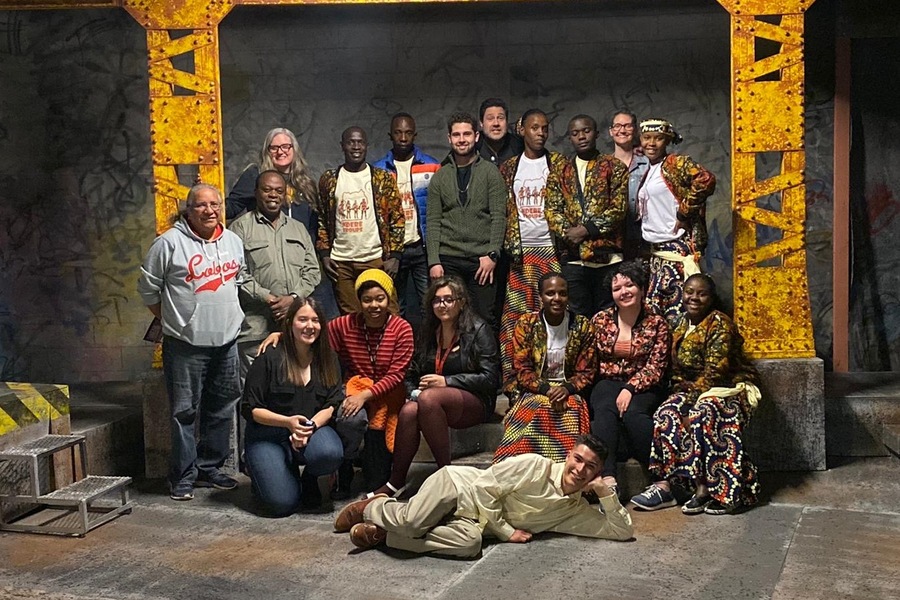
Four days into the 20th annual Revolutions International Theatre Festival, Juli Hendren stopped picking artists up from the airport and started dropping them off instead. When the COVID-19 pandemic reached Albuquerque, N.M., in March, Tricklock Company‘s three-week festival had to be cancelled, and the artists—including those traveling from Kampala, Uganda—had to be sent home.
“Within days, everything shifted dramatically,” said Hendren, Tricklock’s executive director. “As you can imagine, it was financially devastating.”
So devastating, in fact, that Tricklock has announced that it will have to close its door and pay off its debts. The theatre had been hoping to get a National Endowment for the Arts grant through the CARES Act, but last week got the news that they had not qualified. (They did receive $10,000 from New Mexico’s arts commission, but it was not enough for them to survive.)
“We live pretty hand to mouth anyway—we’re not LORT, we’re not even ticket-run, most of our tickets are free,” said Hendren. “What we do is super grass-rootsy, and we live grant to grant, project to project.”
If they’d survived, Tricklock was contemplating a 2021 Revolutions festival that would feature entirely Black artists, both from the U.S. and internationally, and they hoped create funded artist-in-residence positions for Black artists over the next three years. Hendren did float the possibility that if debts are retired in the coming year, some kind of reemergence for the festival could be possible in 2022, but even if so, she said, “It will look very different.”
As for the field writ large, Hendren hopes that the shutdowns provide opportunities to reexamine a theatre industry still governed by the white patriarchy, and that when theatres reopen they will be “more equitable, more shared-based, more accessible.”
Tricklock may have ended after 27 years of producing, and 20 years of producing its festival, but Hendren has little doubt that folks “will continue to create ritual and storytelling in the theatre, because we have been doing that since the dawn of time. My hope is that all of the theatres start to work together in a different way to serve the community.”
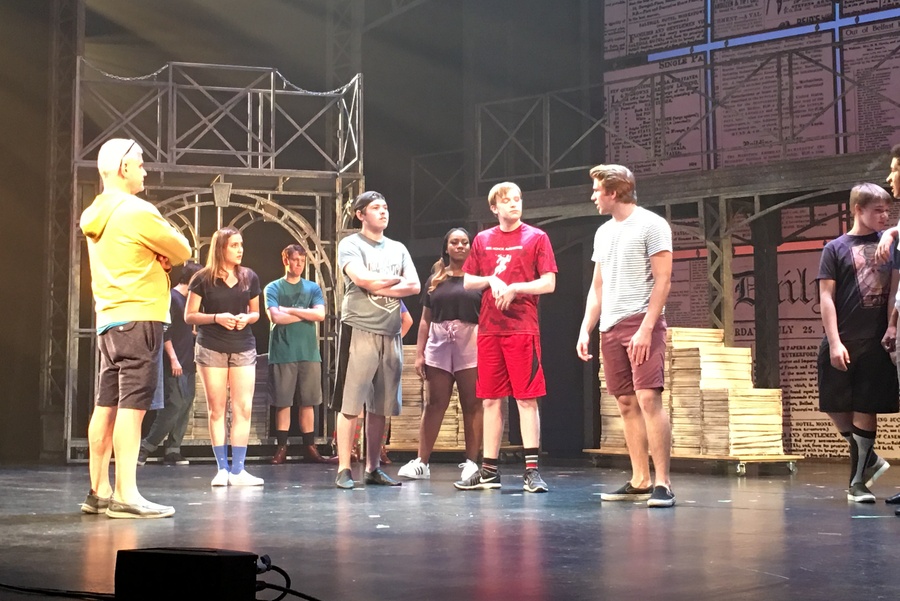
As the nation’s theatres try to stabilize their operations and build awareness for the Black Lives Matter movement, one Arizona theatre looks to children to guide the future of both the industry and the world. The Valley Youth Theatre (VYT) in Phoenix, Ariz., does its best to set aside racial, religious, and socioeconomic disparities in exchange for love, honor, and acceptance, said producing artistic director Bobb Cooper.
The programming works to uphold VYT’s mission: to inspire young people to be the best that they can be. “We use the vehicle of theatre to do that,” Cooper said. “Our goal is to build leaders and character of young people to contribute in a great way to society.”
That mission has changed platforms recently as all youth summer camps have been moved online during the COVID-19 pandemic. Unfortunately, all other programming has stalled: VYT’s production of Marcy Heisler’s Dear Edwina was cancelled in the midst of rehearsals, auditions for Peter Pan aren’t going to happen any time soon, and eight weeks of in-person educational classes went out the window.
Arizona COVID case numbers are still rising, and testing and personal protection equipment are still hard to come by, said Cooper. “To make decisions on the livelihood of young people, we felt it prudent to exercise caution at the highest degree,” he added, mentioning that the next in-person production won’t be until February 2021 at the earliest.
Production cancellations have set VYT back $500,000 in revenue since March. Luckily, the company has not had to fall back on reserves that are earmarked for a large facility in downtown Phoenix that will house all of VYT’s operations and include a state-of-the-art performance space. Recent events have put these plans on hold. The reduction in programming, a loan from the Paycheck Protection Program, and relief funding from the Arizona Commission on the Arts have allowed VYT to maintain its staff.
“Fifty percent of our revenue comes from the kindness of individuals, corporations, and foundations,” he said. “We’ve been hit hard, but we can make it. This isn’t an erase. This isn’t a delete. This isn’t a fast-forward. This is just a pause.”
Kate Mazade is a Goldring Arts Journalism graduate student at Syracuse University.
Creative credits for production photos: Ruined by Lynn Nottage, directed by Phyllis Cicero, scenic design by Rodney Dobbs; The Grapes of Wrath, adapted by Frank Galati, directed by Harry Parker, set design by Jason Foreman, costume design by Amanda Dolan, lighting design by Aaron Mooney, prop design by Larry Heyman

